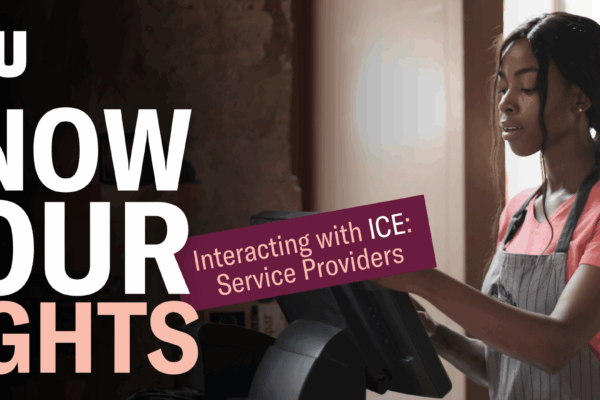Everyone has basic rights under the U.S. Constitution and civil rights laws. When you know what the law says, you can better protect your community.
Now more than ever, we need you to step up in to help protect people who are immigrants and their families.
Stay Informed
Sign up to be the first to hear about how to take action.
By completing this form, I agree to receive occasional emails per the terms of the ACLU’s privacy statement.
By completing this form, I agree to receive occasional emails per the terms of the ACLU’s privacy statement.

